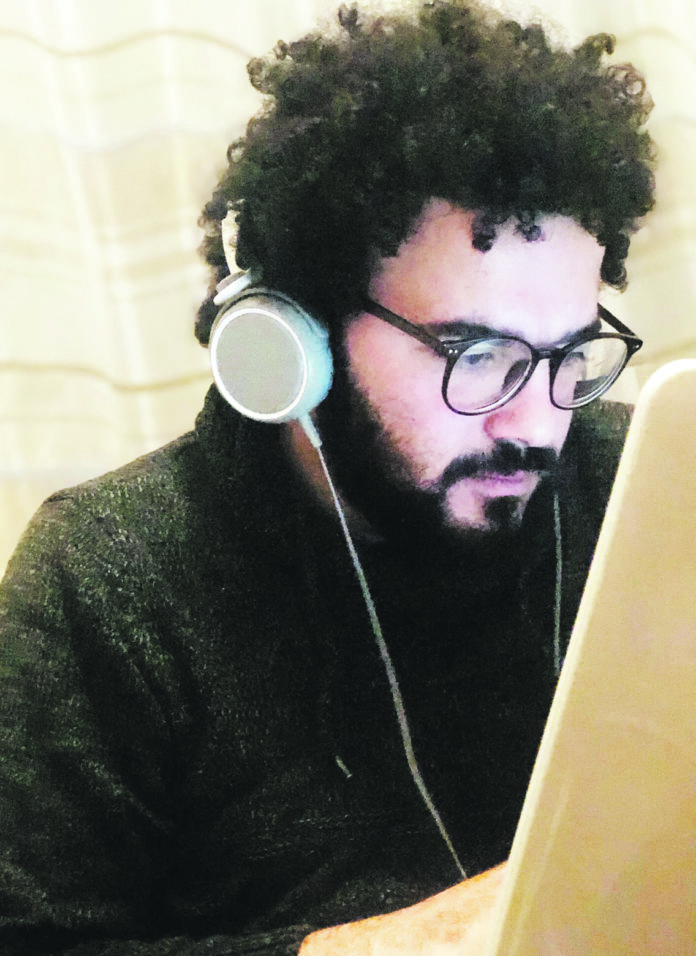
AN asylum seeker in Knockalisheen Direct Provision Centre has offered to pay for basic food hygiene training for canteen staff out of his weekly allowance of less than €39.
Mostafa Fawaz, an award-winning Egyptian journalist, who has been in the Meelick accommodation centre since last October, lodged a complaint with the Reception and Integration Agency (RIA) over the matter last week.
Currently studying for a Masters Degree in Journalism at University of Limerick, Mr Fawaz has complained about the manner in which food is served, including alleged lack of hygiene practices among staff at Knockalisheen.
“We believe that the food is not prepared in a hygienic way and staff are not practicing basic hygiene such as cleaning their hands.
“Some of the staff who serve us are not properly trained in how to communicate and interact with people who come from different cultures. Some of them expressed attitudes towards us that have made us feel like slaves or as if to show us that they are doing us a favour to us instead of doing their job professionally,” Mr Fawaz claimed in his complaint to the RIA.
When contacted by the Limerick Post this week, the Egyptian national went onto claim that many people in the centre are struggling with the hygiene and the treatment by staff.
“But they are scared to make a complaint or even to ask for their rights. They think that if they ask for their rights or if they make a complaint about anything that may effect their cases processing or they might be transferred to a worse centre like that one in Foynes,” he said.
Mr Fawaz went on to state that on December 30 he had to ask one staff member at Knockalisheen, who had been carrying out cleaning duties, to put on gloves before then serving residents their meal.
“They were cleaning and moving some things. I asked them why there’s no one available to attend to the residents’ mealtime. Then, they came to serve three of us. The person then started to serve us without washing their hands or wearing gloves, so I asked, ‘can you wear the gloves please’.
“They went to do it after I asked but as they did, they glared at me in the most uncomfortable way that I could only interpret as racism, a feeling that was one of the worst I have ever experienced in my life.
“As someone who used to work as a social worker, I believe that this person is not properly prepared to deal with people coming from war and conflict zones. In addition, I believe they are not professionally trained to work in this place and should be trained in kitchen hygiene and cleanliness at the very least.”
Mr Fawaz even went as far as recommending an accredited online food hygiene course for the staff member at the centre, which costs £20.
“It’s very cheap, I don’t mind to pay it from my own €38.80 weekly payment,” he concluded.
A Department of Justice spokesman said that all catering staff in accommodation centres are required to be HACCP (Hazard Analysis and Critical Control Point) trained and are required to ensure that the HACCP controls are implemented.
He also pointed out that there is a complaints procedure in place for residents living in Direct Provision Accommodation Centres.
“Where a resident is not comfortable raising a complaint with a centre manager, they may make the complaint directly to the International Protection Accommodation Service (IPAS) through our dedicated email address or telephone line.
“IPAS officials also holds regular one-to-one clinics at accommodation centres, where any complaint a resident has may be raised. All complaints are investigated and the resident will be responded to following that investigation. Where issues are identified, they are notified to centre managers for appropriate action,” he told the Limerick Post.
The spokesman said that the International Protection Accommodation Service (IPAS) makes every effort to resolve complaints as soon as possible.
“However in the event that a resident isn’t satisfied with the outcome, they may contact the Office of the Ombudsman or the Office of the Children’s Ombudsman who may choose to also investigate. The Ombudsman received nine complaints relating to food provided in accommodation centres during 2018,” he added.


